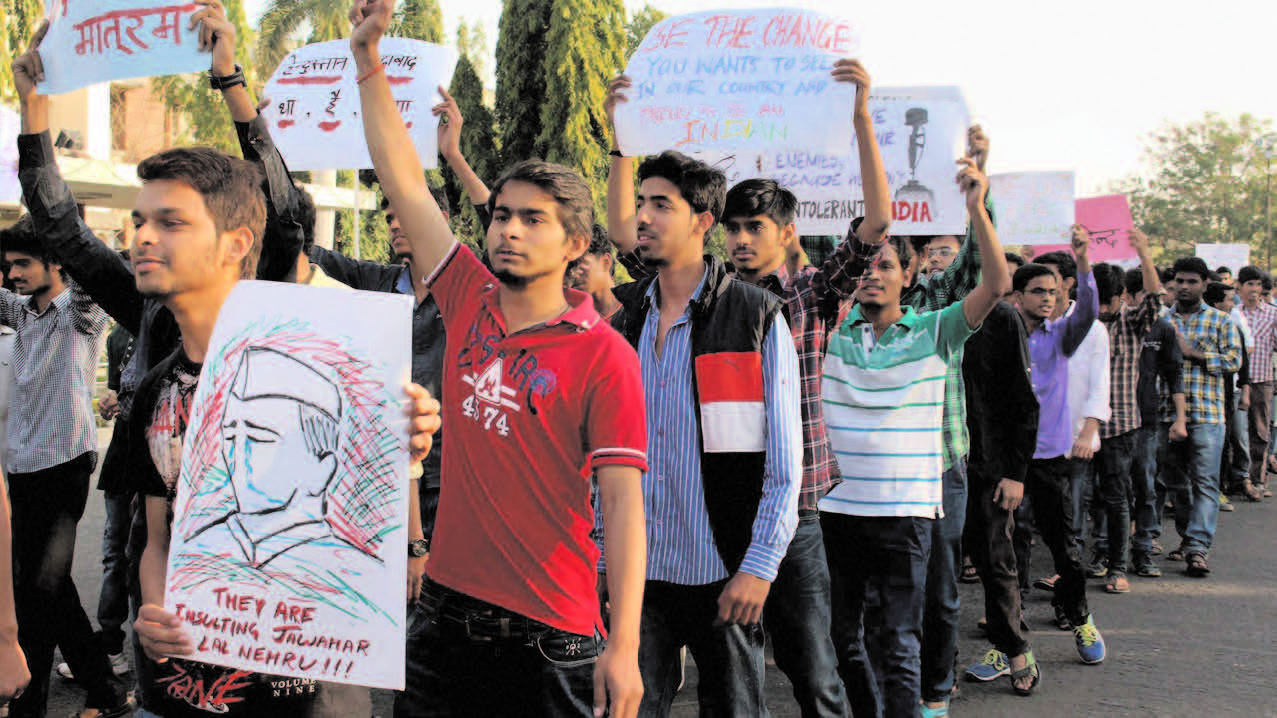
Indian universities are far more in the news than earlier but for reasons other than their contribution to society. Most recently, Central University, Jharkhand, did a flip flop by first suspending a professor for inviting a retired JNU professor to a university event and then revoking it because there was protest. The professor was accused of “tarnishing” the institution by inviting “a professor who mentors anti-nationals”. The charge and the punishment meted out leaves one incredulous. The Vice Chancellor has apologized to the former JNU professor for dragging his name in a controversy. The Jharkhand episode was so needless and possibly due to the mistaken identity of the JNU professor. He had retired much before the students who are currently accused of various acts of omission and commission had joined the university. Further, ideologically, he was to the right of center, while the students under reference belong to the various shades of Left. There was no way this Professor would/could have been their “mentor”.
A day before Holi, Jamia Milia Islamia issued a show-cause notice to the Secretary of its Teachers’ Association for conveying to the Vice Chancellor the opposition of the Association to inviting the Prime Minister for the university’s convocation. The letter had been written in January but the show-cause notice was issued just a week before the Secretary was to retire from the university. He was accused of damaging the prestige of the university. He did not write in his personal capacity and was only doing his duty by communicating the decision of the Executive Council of the Teachers’ Association. Now, the VC has suggested that there was a mistake but it is unclear if the notice stands withdrawn.
Even though there is a retreat from the uncalled for order/notice in the above cases, a message has gone home that others should not dare to oppose the decisions of the university administration or call critics for functions. These are not isolated incidents since there are reports from other institutions of critics being uninvited or their visits kept under wraps.
The above examples point to a change in the model of university governance, with administrators becoming more assertive. Since many other institutions have also faced problems, it suggests that there could be instructions from the powers that be that administration ought to be more assertive. Even the Ministry of Finance withdrew its invitation to a leading economist from the pre-Budget consultation because he is a critic. NITI also deftly “postponed” consultation on the G20 agenda.
The JNU events post-February 9 also suggest external pressure. The Proctorial inquiry was suddenly terminated in a day and another inquiry by senior professors was set up. Police entered the campus a day later when the inquiry had just started and there was neither a law-and-order situation nor any clarity about the sequence of events. Various reasons were dished out to justify the drastic action against the student leadership. Those who shouted the unfortunate slogans heard on videos (perhaps doctored) have neither been identified nor caught two months later.
Hyderabad University is again in turmoil. Universities should allow free access to all – symbol of an open mind – but the entry of media and “outsiders” is now restricted. Soon, this may be used to prevent critics from coming to the university; that would hardly be conducive to free and fair discussion. The lesson is that when democratic functioning is weakened in a university, the administration is emboldened to act in autocratic ways.
Senior faculty which sits in the highest decision-making bodies of the university is under pressure to comply. Reports are that cases have been raked up in JNU against the members of the Executive Council (EC), so as to make them to fall in line with the wishes of the administration. In the last EC meeting, a table item was to be placed to censure one of the vocal elected members for having delayed payment to a vendor. Another vocal, elected member was sought to be reprimanded for writing to the Visitor.
Three years back, Delhi University faced the Four-Year Undergraduate Program (FYUP) issue. Before that it was the semester system without adequate consultation. During the term of the previous VC, those seen to be dissenters were harassed to silence them. While it was claimed that the university acted as per norms, there was manipulation of the EC and browbeating of a majority of the senior faculty to silence them.
The new model of administration, based on treating dissent as a malaise to be crushed by any means, would have long-term consequences. Dissent is the essence of higher education which leads to new socially relevant knowledge. Current actions are irreparably damaging the best universities by creating an atmosphere of fear and forcing compliance which will undermine questioning. Good lectures or good papers do not come due to a diktat but due to commitment to learning and research. A 100 indifferent lectures can kill student interest, while one inspired lecture can light a spark. Large number of journals with poor-quality papers can fill library racks but not generate good research.
The current brood of Vice Chancellors are not only unable to withstand pressure from the Ministry and the UGC but are willing to follow their dictum mechanically. VCs have been political appointees for long but respect for them has weakened over time as convenient people who are willing to bend have been appointed. The political leadership must share the blame since it has increasingly viewed higher education as another arena of manipulation to increase its influence.
For creativity to flower in higher education, a different model of governance than the one currently practiced is required. Competent academics, who can withstand external pressures and rule institutions by creating consensus by dint of argument rather than via diktats, must be at the helm. The powers that be are moving in the opposite direction. A committee consisting mostly of bureaucrats rather than academics is devising the new education policy. In Gujarat, a Bill has been passed to curb the powers of VCs by setting up a Council under the chairpersonship of the chief minister to govern all universities. In the central universities, apparently an order has been received that all financial decisions of the EC would have to be approved by the Finance Officer. So, he would be above the VC who heads the EC. In JNU, the current practice of appointing chairpersons by rotation is sought to be changed in favor of the VC appointing a person of her choice.
Erosion of questioning and autonomy in the universities and colleges will not stop at the gates of these institutions but would impact wider intellectual pursuits. Those who are trying to control the universities by attacking independent thinking and questioning of the ruling orthodoxy are also ringing the death knell of dynamism in society.
(The author, a former President of JNU Teachers’ Association, is the founding President of the Coordination Committee of Teachers Associations of Delhi).





Be the first to comment